New players do not recognize the old rules, and antique calligraphy and painting transactions are difficult to return!Representatives of the People's Congress suggest to regulate this market
Author:Jiefang Daily Time:2022.09.25
With the improvement of economic living standards, the demand for artistic consumption has increased. According to the 2021 Edition of the Bazel Art Exhibition and UBS Global Art Market Report, Greater China is the second largest market for global art transactions.
In the process of art transactions, there are increasing disputes generated by returns, which has also triggered a series of controversy: Does antiques and calligraphy and paintings belong to the scope of 7 days without reason? Once a return is generated, how should the interests of the buyers and sellers be protected?
From the perspective of Zhu Qi, a representative of the Municipal People's Congress, the trading behavior in the art field has not been effectively regulated. It is recommended to sort out the problems in the cultural relics and art markets, especially the difficulties in rights protection, prices, and grades. In order to formulate management measures for returns in art transactions, we must strive to achieve both "strict protection" and "prevent malicious abuse".
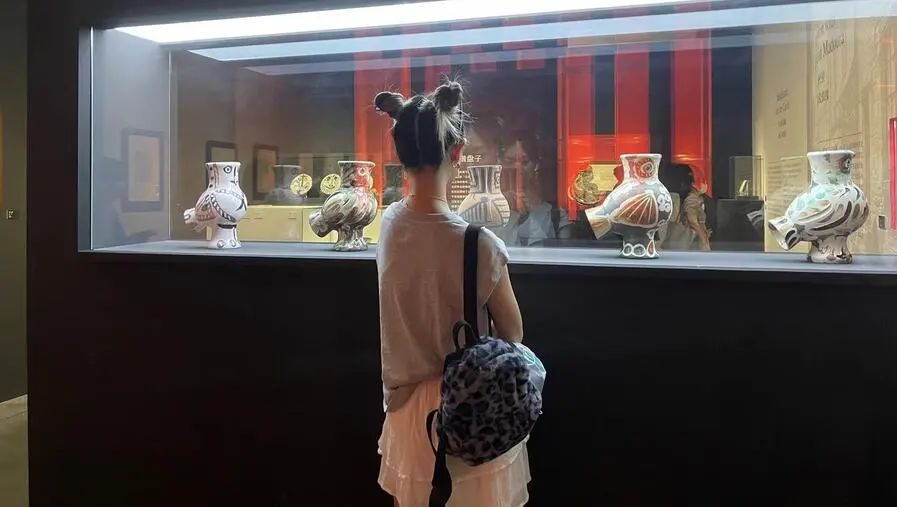
New players enter the venue, don't you recognize the old rules?
"When I opened this painting, this corner was damaged." Some consumers bought a painting online and returned the goods in five days, but the merchant could not judge whether the painting was damaged before sale or after -sales sale. Essence "The return of art made practitioners is particularly embarrassed." Zhu Qi said that cultural relics products may be damaged in the hands of consumers, especially high -ancient paper artworks. This damage occurs before sale or after -sales.
There are generally several reasons for the return of artworks: individuals do not like; family members do not agree; the price is too expensive; there are doubts about the materials of the product, the authenticity of the author, the interrogation, or the integrity of the product.
Sometimes merchants also encounter consumers who buy real -time leave. After buying a famous calligraphy calligraphy and painting, replicate a re -return with modern technology in a short period of time. Because the art is unique, once it is sold, the standard parts cannot be found to compare, it is difficult to confirm whether the return of the product is the original selling. "This provides space for illegal merchants to know fakes and sells holidays, and also creates conditions for illegal consumers to buy real -fals." Zhu Qi said.
What makes people even more hurt is that some calligraphy and painting traffickers are sold around after buying artworks, and they are all happy to be sold successfully. If no one picks up, it will return the goods for various reasons. "If it is not restrained at the level of the regulations, the merchant may be reduced to a free warehouse for calligraphy and painting."
The reason why the return dispute caused a headache because the rules changed.
In the eyes of players, this is an ancient trading market. There are six major rules for antiques: not teaching, not identification, no controversy, no guarantee, no owe money, no return. "Antiques and calligraphy and painting trading used to rely on rules, buyers often do not return the goods." Zhu Qi said that antique trading is a heartbeat, buying good things is "picking up", you can only eat fake goods. "You buy paintings in Wenwanpu. Once you pay the door, the seller will not recognize the account. If you buy a fake, the buyer is generally not refunded, and you will not be able to speak, otherwise you will be joked."
According to senior players, not returning is an iron law of antiques. If you can play, you can give up if you can't play. What the buyer wants to retire is usually because buying high or eye -catching, but in fact the price of that thing is not necessarily high or false. No return is a great restraint and test for buyers. As a buyer, you can't just want to pick up and make money, and the risk of eye -catching must be borne by yourself.
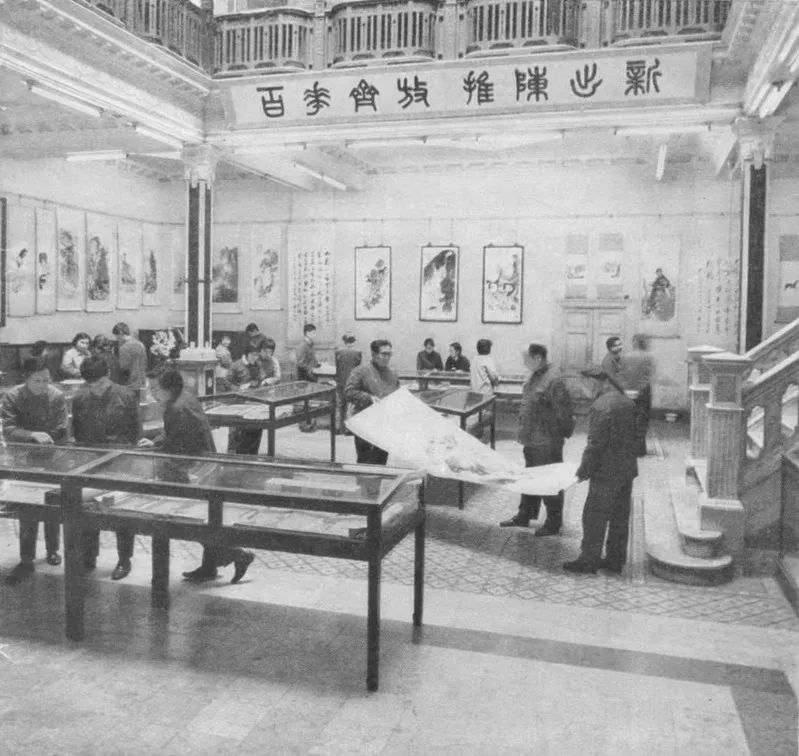
In the 1960s, the Duoyunxuan Gallery Trading site.
Now that new buyers enter the venue, they are not familiar with this "old business rules" and do not recognize. In the concept of modern consumers, buying goods on the Internet is naturally righteous. Someone wanted to return the goods after buying calligraphy, painting and antique.
"Once a return occurs during the operation of art, it is difficult to judge the right and wrong judgment." Zhu Qi said that when the Consumer Protection Commission, the Market Supervision Bureau, the Commercial Commission, the Cultural Relics Bureau and other relevant administrative departments deal with such disputes, due to the lack of sufficient lack of sufficient lack The basis for judgment is often persuaded and peaceful. This is not conducive to the development of this market.
Is antique and calligraphy and painting a special product?
Disputes caused by "return" during the art transaction have become a major illness that plagues the development of the industry. This takes a problem -the product attributes of art, antiques, calligraphy and painting.
The reporter consulted that the "Consumer Rights Protection Law of the People's Republic of China" specifically stipulated that there is no reason to return goods on online purchase of goods, that is, "operators use the Internet, television, telephone, mail order and other methods to sell goods. Consumers have the right to receive the goods from the goods. Returning the goods within seven days from the date of time, and there is no need to explain the reason, but the following products are eliminated: consumers are decided; fresh and easy to rot; online download or digital products such as audiovisual products, computer software unpacked by consumers; , Journal. "
"Arts are not within the scope of these four types of exemptions, but they are special products, not standard parts." Zhu Qi believes that arts, calligraphy and painting and other art products are different from daily consumer products, and they are different from gold and silver. They are recognized as recognized as. Quality standards and market prices. For a long time, employees have rely on personal experience to make subjective judgments on their authenticity, pros and disadvantages, age, and materials, and lack objective and perfect quantitative standards. "You think it's good to see it, but some people think it is a fake, which is a lot of misjudgment and moral risks."
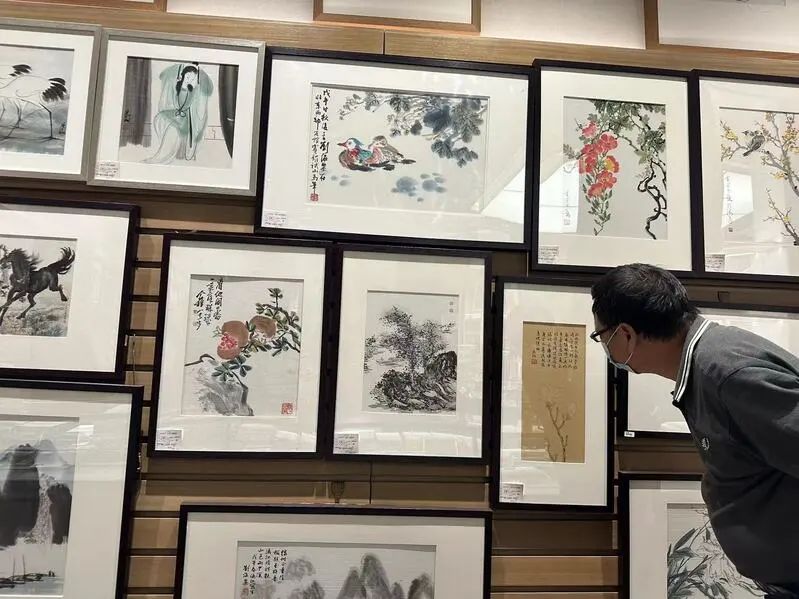
Customers choose calligraphy and paintings in galleries
In the West, the art gallery generally has a contract agreement. If you think that you buy a fake, you can ask the authoritative institution to identify it, or to identify it through advanced technology. Experts' appraisal opinions will be adopted by the court. Or the contract between the two parties agreed in advance, how many days can be refunded, and if you return, it will bear a fine of 20%-30%. However, in China, the field of art appraisal is not yet mature, and the business appraisal agencies in the society are mixed with mixed fish and dragons. There are malicious moral risks, which brings difficulties to the qualitative characteristics of art. Some senior players told reporters that this is a special market for niche. The authenticity, advantages and disadvantages of most artworks, the lack of scientific repeated detection methods, and have strong subjectivity. Price assessment also varies from person to person, and it is very far apart. Even the authoritative Thai Dou like Xu Bangda and Xie Zhiliu, in the judgment of many ancient calligraphy and painting, has their own words. The industry has been in the industry for half a century. There is no conclusion so far. Make a statement that does not match the facts.
Is it applicable "Seven days without reason to return the goods"?
In the interview, most experts believe that cultural relics, calligraphy and painting, etc. have its special characteristics, and are different from ordinary popular standards. Then, does special artwork belong to the scope of "seven days without reason"?
The response opinion of the market supervision bureau of the undertaking department is that the adjustment scope of the Consumer Rights Protection Law is some of the rights and obligations in the process of living consumption. In practice, cultural relics, antiques, calligraphy and painting and other art transactions have the attributes of life consumption, and on the other hand, they also have the attributes of investment. They cannot apply the consumer rights protection law.
The reporter noticed that there is no reason to return goods on online purchase of goods, and the "Regulations on the Protection of Consumer Rights of Shanghai" and "Interim Measures for the Seven Days of purchasing goods online" further refine In addition, other goods that should not be returned according to the nature of the product (commodities that are easily affected by personal safety or health after demolition, products with greater degradation of value after activation or trial), the operator should inform consumers in a significant way and set up to set up a significant way, and set up setting up a significant way, and set up setting up a significant way, and set up setting up. Prompt the program, take measures or technical means for consumers to confirm. If consumers confirmed before the purchase and settlement, it is not applicable to no reason to return. Consumer return products should be intact.
Tang Jiansheng, Deputy Secretary -General of the Municipal Consumer Consumer Consumer Consumer Consumer Commission participating in the legislative survey, said that the "patch" of the Shanghai Consumer Protection Regulations is to consider the situation of buying real goods return leave in such transactions such as luxury goods, cultural relics, calligraphy and painting, etc. There are similarities between goods and luxury goods, and this patch clause can be used to defend their rights. But this regulation is only applicable to Shanghai. If the seller is from Shanghai, the buyer is from Guangdong, and the buyer can file a lawsuit in Guangdong, then it may not be fully applicable.
In Tang Jiansheng's opinion, cultural relics have its special characteristics. Whether it is fully applied to the regulations of 7 days without reason to return the goods remains to be discussed. However, in accordance with the trading practice of the cultural relic industry, buyers usually need to make a judgment on the real eye view, so it is given the right of online buyers without reason to return the rights of buyers to protect the buyer's rights and interests.
This also represents the opinions of a considerable number of people. In the interview, many experts believe that from the perspective of the protection of consumer rights and interests, online consumers have the right to return goods, and artworks such as cultural relics, antiques, calligraphy and painting should also be included.
"Previous players buyers have also seen, touched, and weighted them in their hands. They will only buy it after repeated judgment." Tang Jiansheng believes that "seven days without reason to return goods" is the protection of the rights and interests of consumers on online transactions. The cost of e -commerce is much lower than opening a physical store. Cultural relics, galleries, and antique shops choose online transactions, and the necessary costs should be taken. And operators can truthfully inform consumers' product details in the online trading platform and set risk prompt procedures.
How to avoid malicious return from the source
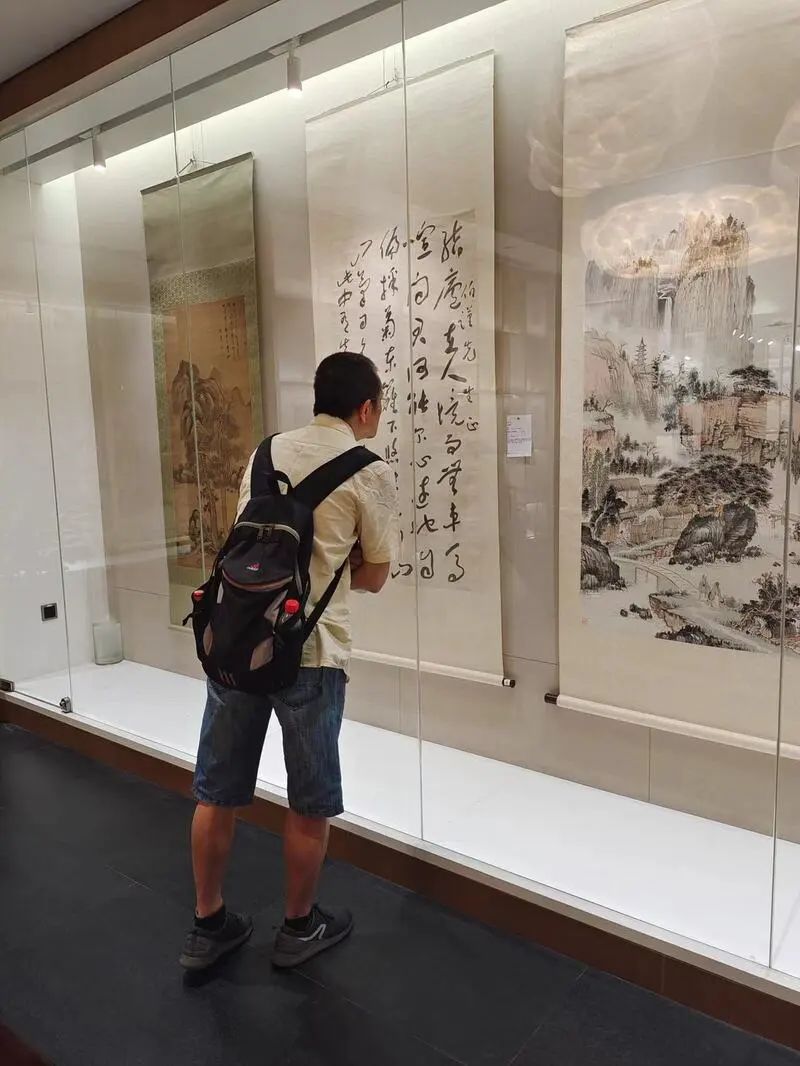
In fact, Zhu Qi represented the chaos of returning goods, which mainly exists in malicious consumption.
"If you really encounter a person who buys true and retreat," is not a matter of consumer rights, and may involve illegal crimes. "Tang Jiansheng said.
According to the response from the Municipal Cultural Tourism Bureau, offline cultural and artistic work transactions cannot apply to the relevant regulations for returning goods in the protection of consumer rights and interests. The relevant provisions of the "Civil Code" contract should be applied. The return of the return is mainly resolved in accordance with the terms of the contract or the meaning of both parties. Legal, clear, and specific contract terms are an important means to prevent returns from being "malicious abuse". As for the high -tech means to replicate the act of buying true and refunded leave after art, it has been suspected of illegal crimes and exceeds the category of adjustment of the consumer rights protection law.
For this response, Zhu Qi said, "The operating supervision of art involves a large number of departments. Once the return incident is encountered, the market supervision department has its own interpretation of the regulations. Different disputes. "He believes that he should sort out to see if there is conflict or contradiction between legal terms, and where is the scale that practitioners should grasp. It is recommended that relevant administrative departments in Shanghai set up a joint investigation team with industry associations and professional institutions to conduct research on consumer and cultural relics shops, galleries, antique cities, and art auction companies. The popularization and interpretation of laws and regulations such as laws and regulations such as art management.
gallery
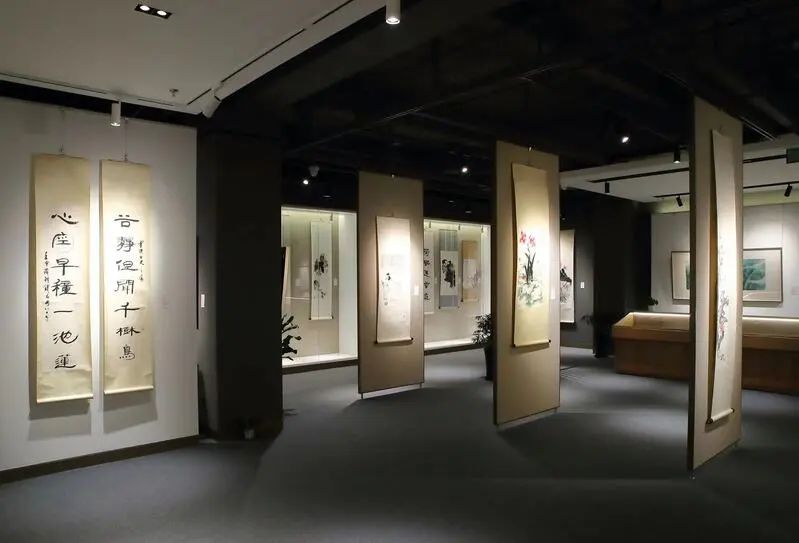
Another problem solving is technology. Zhu Qi suggested that some valuable artworks can introduce technical means such as blockchain to assist for consumers to make decisions. "Digital preservation through the blockchain. Through the comparison of the database, the merchant can confirm whether the refund is a artwork sold." In Zhuqi, Shanghai is accelerating the sprint to the world art trading center. Last month "Several Provisions on the Trading of Cultural Relics and Arts in Pudong New Area in Shanghai" has just been passed. At present, the art market is developing rapidly, and the management measures must be advanced with the times. Only when the interests of consumers, operators and other parties have been fully protected, and the art market trading behavior is better regulated, can this market be healthy Orderly develop.
The Municipal Cultural Tourism Bureau also stated that the supervision of the business activities of cultural relics and art involves more departments and units such as market supervision, commerce, public security, customs, cultural relics, etc. In the next step, we will combine problems with the cultural relics and art market with relevant departments, especially the difficulties such as rights protection, prices, and pupae to further improve the law enforcement cooperation mechanism between departments, promote open and transparent transactions, and protect the legitimate rights and interests of consumers and business entities.
Liberation Daily · Shangguan News Original manuscript, reprinting without permission
Author: Wang Haiyan
WeChat editor: nano
School pair: Feifei
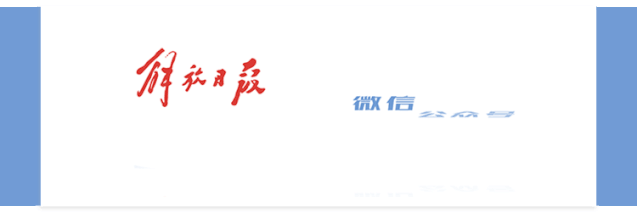
- END -
"Paper in thousands of years"!Go to Hangzhou International Craft Week to view the long text of "Flowers on Paper"
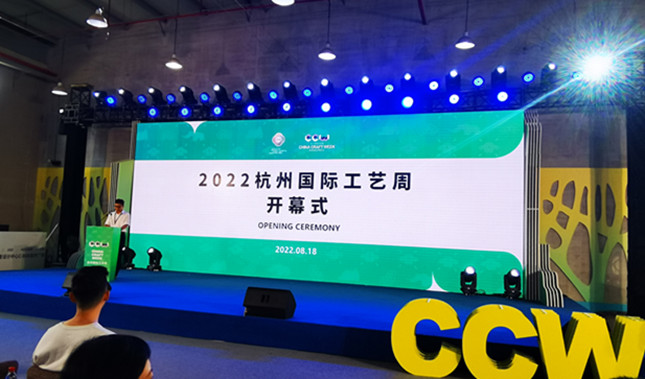
This morning, the 5 -day No paper 'here 2022 Hangzhou International Technology Wee...
The national copyright innovation base is "heavy new", leading the new momentum of the digital economy

On July 5th, the China Publishing Creative Industry Base and National Copyright In...